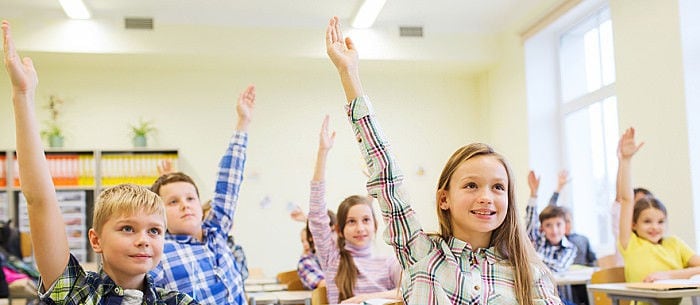Education plays a vital role in your child’s development, so choosing the right school is one of the most important decisions you can make. The problem is, it’s no longer just a choice between private and public schools. Several new types of schools have cropped up, which may leave parents confused.
Here’s the lowdown on your school options to help you make an informed decision for your child:
- Public Schools
These are funded by local, state and federal taxpayer money. “Public schools vary so much across the country — and from neighborhood to neighborhood,” says Alina Adams, a kindergarten admissions consultant at River Park Nursery School in New York City and the author of the upcoming book Getting Into NYC Kindergarten. All public schools must also adhere to the regulations and curriculum requirements of the state.
- Charter Schools
These are independently operated public schools that do not charge tuition. Although they vary by location, most are considered cutting-edge. They are run by a board of community members or a private firm, and generally use a lottery system for admittance.
- Magnet Schools
Developed in the 1970s to give the public school system more educational diversity, these are public schools specializing in a specific area, such as the arts and music, or science, technology, engineering and math (STEM) skills. Children have to apply and be selected to attend.For more information, read What Is a Magnet School?
- Online Schools
More and more school systems now offer online classes, both in the public and private sector, says Allison Cleveland, executive vice president of school services at K12 Inc., an online education system.
- Private Schools
These are independently owned and funded solely by tuition or by contributions from a board of trustees. “They can vary greatly from ultra-progressive to very structured,” says Adams. Schools in the private arena give parents more of a choice about their child’s education. Parents can choose a school with the philosophy they agree with, rather than just going along with whatever the public school in their neighborhood offers.
- Parochial Schools
Typically associated with a church or religious organization, these are often less expensive than private schools. Your child doesn’t have to be that faith, but will be required to attend religious classes and prayer.
- Single-Sex Schools
Though most single-sex schools are private, there are a few in the public arena, says Cleveland. Studies indicate that boys and girls learn differently and thus might perform better in a single-sex school and that girls, specifically, are more confident in math and science when they attended gender-specific schools.
- Homeschooling
Many parents wish to forego all types of formal schooling and teach their child at home. Though state requirements vary, most require notification that a child is being educated at home and some request a curriculum. Parents can tailor their child’s education and apply whatever educational philosophy works best for their child. However, parents can easily become overwhelmed being both their child’s teacher and parent.
- Cooperative Education
“A lot of parents homeschool their children in a co-op setting,” says Cleveland. Parents share duties and trade off roles to help give the children a well-rounded education. This type of model helps relieve the pressure off the sole parent in the traditional homeschooling method.
In additional to traditional education, these types of schools (mostly in the private sector) focus on philosophies of education developed by educational experts:
- Waldorf Education
Waldorf focuses on hands-on learning and emphasizes imagination, with guided free play and the use of natural materials.
- Montessori Education
The Montessori Method takes a much more child-led approach to learning. It fosters learning through discovery and the use of specific Montessori-approved materials.And check out Montessori Preschool: Is it Right for Your Child?
- Emilio Reggio Education
The Emilio Reggio model is also child-led, but encourages work in small groups of students and teachers to foster collaboration and cooperation.
- Play-Based Education
Schools with a play-based education model create an environment in which children can safely explore and experiment and accomplish learning through play.
When considering which types of school are right for your child, Cleveland says, “Parents should do their research and investigate the different options in their community. They should also know their child. What’s best for one child might not be best for another.”
Rebecca Desfosse is a freelance writer specializing in parenting and family topics.





